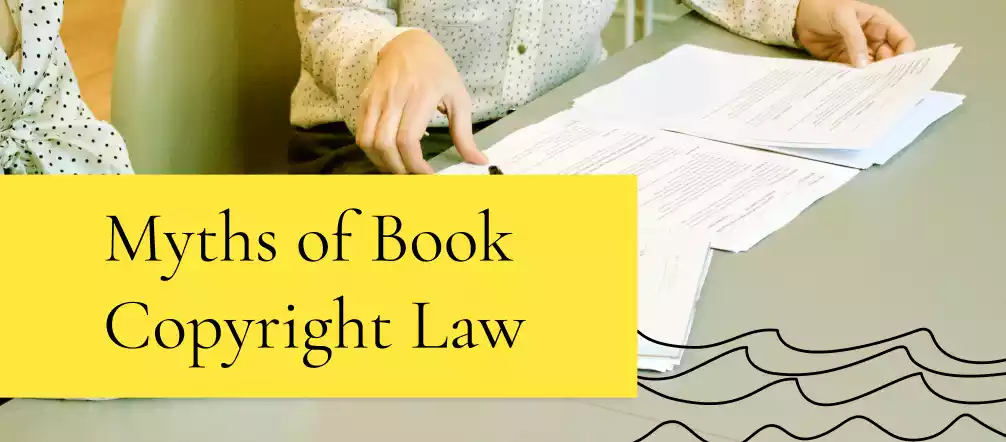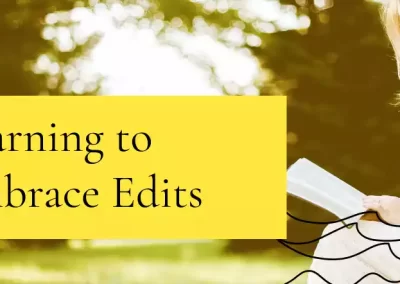Book copyright law in the US is a complex area of law that impacts authors, book publishers, and all other parties involved in the creation, publication and distribution of books.
Copyright law protects original works of authorship including books, music, artwork and photographs from unauthorized use or copying by others in the US and abroad. Under copyright law, authors have exclusive rights that protect their creative expression and provide them with economic benefits as a result of their work.
“Copyright, a form of intellectual property law, protects original works of authorship including literary, dramatic, musical, and artistic works, such as poetry, novels, movies, songs, computer software, and architecture” explains the U.S. Copyright Office at copyright.gov. “The copyright in a work initially belongs to the author(s) who created that work.”
In order for an author’s book to be eligible for copyright protection, the book must meet certain requirements (such as originality and tangibility).
Understanding book copyright law can help protect your work against infringement or unauthorized use while also helping you make informed decisions regarding how best to manage your rights. Book copyright law is an important aspect of the publishing industry and every author should at least have a cursory understanding of it.
Unfortunately, there are many misconceptions about copyright law which can lead authors to believe things that may not actually be true when it comes to book copyrights in the United States.
We hope this information can help authors to better understand what they need to do to protect their work. In this article, we will debunk some of these common misconceptions so you can better understand how copyright laws apply to books published in the United States.
Here are three common myths surrounding book copyright law in the US:
Myth #1: Copyright Law Protects Ideas, Not Expression
This is a common misconception among authors – that copyright law protects ideas and not the expression of those ideas.
Copyright law, however, does protect both the idea and its expression. As long as an original work has been “fixed in a tangible form” (such as on paper or digitally), it will be protected by copyright laws in the US. This means that any copying or reproducing of your book without permission would constitute infringement of your rights under US copyright law.
“Fundamental to traditional copyright doctrine is the claim that copyright only protects an author’s particular expression of an idea and never the idea itself. Courts consider this idea/expression dichotomy to be the central axiom of copyright law to use when determining what is protected in infringement cases” explains Richard H. Jones his The Myth Of The Idea/Expression Dichotomy In Copyright Law (hosted by Pace University).
In this context, an “idea” is a concept, theme or general idea behind a work. Ideas are not protected by copyright law because they cannot be fixed into tangible forms of expression and therefore do not meet the requirement for protection under US copyright laws. The only thing that is protected by copyright law are expressions of those ideas in some tangible form (such as on paper or digitally).
Expression in a tangible form refers to the physical or digital manifestation of an idea, such as when it is written down on paper or saved onto a computer. Expression also includes performance, photographs and audio recordings. As long as your expression is captured in some physical (or digital) medium, then it can be protected by US copyright law.
Myth #2: Any Work Created After 1977 Automatically Has a Copyright
Another common misconception is that any work created after 1977 automatically has a copyright. This is not the case. In order for a work to be protected by US copyright laws, it must meet the requirements set out in the Copyright Act and be registered with the United States Copyright Office.
Although US copyright law does protect works published after 1977, authors must still register their work with the US Copyright Office in order for full protection to apply. This means that any unauthorized copying or reproducing of your work would be considered copyright infringement, even if the work was created after 1977.
While registering your work with the US Copyright Office may provide additional protection and legal advantages, it does not create an automatic right to protection under US copyright law just because you registered it at some point in time since 1977.
Myth #3: All Works are Protected by Copyright Laws in the US
It is true that copyright laws in the US protect books, but not all books are eligible for copyright protection. In order for a book to be protected under US copyright law, it must meet certain requirements such as originality and fixation in a tangible form (such as on paper or digital media).
Before submitting your manuscript to publishers, take a moment to learn and think about copyright. If your book is finished, or as you’re finishing your manuscript, this is an ideal time to consider this. Depending on the type (and estimated future value) of your literary work, most all authors should consult with a legal professional who specializes in copyright law, just to be sure, as an author and creator, you’re managing and maximizing your protection.
Resources for authors interested in learning more about Copyright Laws in the US
Copyright is a set of legal rights given to the creators of original works, and allows them to control how their work is used and distributed. Copyright registration with the U.S. Copyright Office provides additional protection for authorship that can last for many years.
- Learn more about what works are protected by copyright laws in this detailed publication offered by the United States Copyright Office and copyright.gov: “Copyright Basics”, Circular #1, US Copyright Office, copyright.gov – Circular1.pdf (hosted by copyright.gov).
- Explore all protected works in this resource: “What Does Copyright Protect?” – hosted by copyright.gov.
- Develop your understanding of protected works in this publication offered by the United States Copyright Office and copyright.gov: “Works Not Protected by Copyright”, circular #33, US Copyright Office, copyright.gov – Circular33.pdf (hosted by copyright.gov).
- Master US copyright law as pertaining to work registration for literary works in Chapter 700 of The Compendium of U.S. Copyright Office Practices, Third Edition – the administrative manual of the Register of Copyrights concerning Title 17 of the United States Code and Chapter 37 of the Code of Federal Regulations. It provides instruction to agency staff regarding their statutory duties and provides expert guidance to copyright applicants, practitioners, scholars, the courts, and members of the general public regarding institutional practices and related principles of law.
- Explore other resources for authors.
This information is NOT LEGAL ADVICE – We strongly encourage all authors to meet and speak with a legal professional anytime questions of copyright or law arise.




